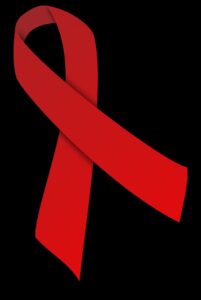Acquired Immunodeficiency Syndrome (AIDS) is a potentially life threatening condition caused by the Human Immunodeficiency Virus (HIV) and is transmitted from human to human as a sexually transmitted disease, through contact with infected blood, and from mother to child during pregnancy, childbirth, and breast feeding . HIV damages the immune system of the human body, and thus we have less ability or inability to fight any infection or disease. As of date, there is no cure for HIV / AIDS but we have surely been able to halt the progression of the disease with effective medicines.

As we all know, our innate immunity plays a major role in the initiation and progression of cancer in the human body, so it does not come as a surprise that HIV / AIDS comes with an increased susceptibility to different types and forms of cancer. AIDS-related cancer refers to any cancer that is more likely to occur in a person who is infected with HIV. The list includes, but is not limited to, Kaposi’s sarcoma (KS), lymphoma, including Non- Hodgkin’s Lymphoma (NHL) and Hodgkin’s Lymphoma (HL / HD), Cervical cancer and cancers of the mouth, throat, liver, lung, and anus. This list can be further extended to angiosarcoma, penile cancer, testicular cancer, colorectal cancer, and different varieties of skin cancer, including basal cell carcinoma (BCC), squamous cell carcinoma (SCC), and melanoma. Of these, a trio of cancers, namely, KS, NHL, and cervical cancer, are referred to as AIDS-defining cancers, meaning that the development of any of these cancers in an HIV positive patient signifies the progression of HIV positivity to full blown AIDS. This trio of cancers is described below
- Sarcoma di Kaposi: Kaposi’s sarcoma is a soft tissue sarcoma (sarcoma = cancer arising from the connective tissue of the body), which can be divided into endemic KS and epidemic KS. Endemic KS is unrelated to HIV / AIDS and has been traditionally associated with young African males, those of Jewish or Mediterranean descent, or persons who are on immunosuppressive therapy following an organ transplantation. Epidemic KS is associated with HIV / AIDS and typically, homosexual men with HIV / AIDS associated with Human Herpesvirus (HHV) type 8 infection.
- Non – Hodgkin’s lymphoma: The lymphatic system is a network of lymph vessels and lymph nodes in the human body that carries a colourless ultrafiltrate of the blood called lymph, which typically contains lymphocytes, a type of white blood cell. The lymphatic system has an important role to play in the defence mechanisms of our body. Apart from the lymphatic channels and the lymph nodes, the spleen (filters blood and makes lymphocytes), the thymus, the tonsils, and the bone marrow also form part of the lymphatic system. NHL is a type of cancer of the lymphatic system where the healthy cells of the lymphatic system multiply rapidly, grow out of control, and may or may not form a tumour. Although there are many different types of NHL, the ones that are most commonly associated with HIV / AIDS are aggressive B cell lymphomas, especially diffuse large B cell lymphoma (DLBCL) and Burkitt’s lymphoma; primary central nervous system lymphoma (primary CNS lymphoma) affecting the brain; and primary effusion lymphoma, which causes fluid accumulation around the lungs (pleural effusion), heart (pericardial effusion), and abdominal cavity (ascites).
- Cervical cancer / cancer of the uterine cervix: The uterine cervix, commonly known as the cervix, is the lowermost part of the uterus, which projects out into the vaginal cavity and thus forms the birth canal. Women with HIV / AIDS have a higher propensity to develop a precancerous condition of the cervix known as cervical intraepithelial neoplasia (CIN). There are different grades of CIN and its association with the Human Papilloma Virus (HPV); mainly types 16 and 18, has been proved conclusively. A high grade CIN (CIN – III) can progress to invasive cervical cancer. Typically, it takes decades for a CIN to progress to invasive cervical cancer, but a co-infection with HIV / AIDS can hasten the process of development and progression to invasive cancer by a mere few years.
La gestione e il trattamento dei tumori correlati all'AIDS non sono diversi dai protocolli di trattamento accettati per questi tumori senza l'associazione dell'HIV / AIDS, ma dobbiamo anche trattare contemporaneamente l'HIV / AIDS ed essere estremamente vigili sull'immunosoppressione aggiuntiva dovuta al cancro, la malattia (HIV / AIDS) e quella indotta dal trattamento.
scritto da Dott. Partha Mukhopadhyay

